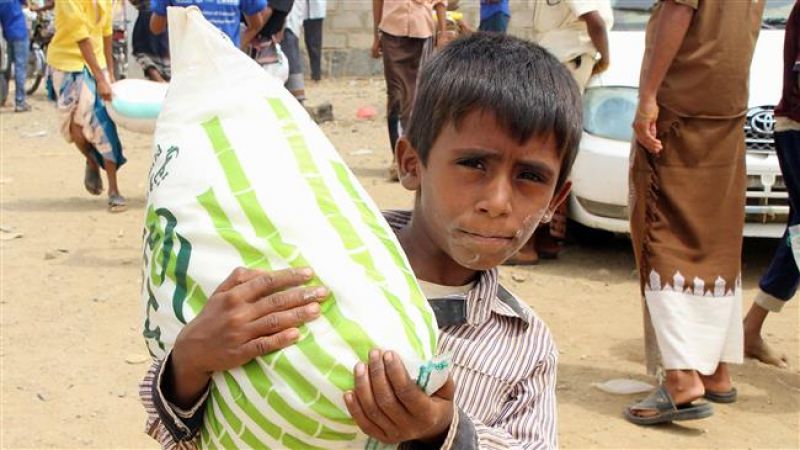
Local Editor
Thousands of civilians are trapped in Yemen’s Hodeida as Saudi Arabia and allies step up their attacks to capture the port city from the Houthi Ansarullah movement.
Backed by air power from Saudi Arabia and the United Arab Emirates, militia groups loyal to Yemen’s ousted former president, Abd Rbbuh Mansour Hadi, have been pushing to seize the Duraihami District, which lies adjacent to southern Hodeida.
The Saudi-led front mounted a new offensive in Duraihami on Tuesday, two days after laying a siege to the heavily-populated area.
Local reports said the area is being constantly targeted by Saudi-led airstrikes, rocket attacks, artillery and an ongoing ground offensive.
The Houthi fighters say the Saudi-led coalition has been indiscriminately targeting civilians.
"The aggressor’s mercenaries are attacking the city randomly and they have destroyed houses and killed civilians inside them," a Houthi fighter in Hodeida told Middle East Eye news portal.
The airstrikes killed dozens of civilians in Duraihami and they are still targeting civilians, while Ansarallah [the Houthis] are fighting face-to-face on the ground," he added.
While authorities are trying to cope with a severe shortage of food and medicines due to the Saudi siege, the attacks have also crippled internet coverage across the region, making it almost impossible for residents to contact the outside world.
“There are some people that have bled to death [in the street] and no one dared to help them because of the clashes. Some corpses have decayed in the streets,” one resident said when reached by MEE.
Local health officials told MEE that airstrikes and rocket attacks on Duraihami had killed “dozens” of civilians but the extent of casualties was unknown.
Human Rights Watch says the Saudi-led coalition has conducted scores of “indiscriminate and disproportionate air strikes” hitting civilian objects that have killed thousands of civilians “in violation of the laws of war”, with munitions that the US, United Kingdom, and others still supply.
In one of their most abhorrent attacks, Saudi warplanes targeted a school bus in Yemen’s northwestern province of Saada last week, leaving 40 children and 11 adults dead.
According to data from an independent monitoring group, the Yemen Data Project, this was just one of 55 instances of attacks on Yemeni civilian vehicles this year.
The group also suggests that Saudis are targeting civilians on purpose as an extensive analysis of over 18,000 airstrikes from March 2015 to April 2016 shows that almost a third (31%) of the targets were non-military – civilians or civilian infrastructure.
This is while only 36 percent of the attacks targeted military sites. The rest of the attacks were classified as having an unknown target.
Following the deadly attack on Yemeni children, Democratic members of the US Congress have written three separate letters to Trump, asking him to justify Washington’s continued support for Riyadh in the face of its many atrocities.
The US, the UK and France have been the main providers of weapons and intelligence support to the Saudi Arabia and the UAE during the war.
It was reported in the days following the attack that an American bomb was used to hit the bus. The US has refused to condemn the attack.
The lawmakers have also urged US Defense Secretary Jim Mattis, Secretary of State Mike Pompeo and National Intelligence Director Daniel Coats to brief them on the war.
After the attack, the Riyadh regime first defended the strike as "legitimate" but later said it would investigate "collateral damage."
Spain said this week that it was reconsidering its arms sales to Saudi Arabia after the attack. The country sold about $500 million worth of weapons and munitions to Saudi last year, according to the London-based al-Quds al-Arabi newspaper.
UN spokeswoman Alessandra Vellucci announced on Friday that UN Special Envoy for Yemen Martin Griffiths had extended an invitation to the warring sides for fresh peace talks in Geneva on September 6.
Source: News Agencies, Edited by Website Team